Words MAXMILIAN WECHSLER Portrait photographs Jaran Lakkanawat
| HIS Excellency Nguyen Tat Thanh took up his post as ambassador of the Socialist Republic of Vietnam to Thailand in March 2014. The 49-year-old diplomat is a far cry from the bumbling Vietnamese officials portrayed in Hollywood B-grade war flicks in which the Americans somehow miraculously appear to come out on top. |
Since his arrival here, the soft spoken but intellectually sharp Mr Thanh has made a favourable impression on the Bangkok diplomatic corps and all those who meet him. He clearly enjoys his work. For example, when he attends a National Day reception he tends to leave early, not because he plans to go home and relax, but because he doesn’t want to disappoint the host of another function he has been invited to.
In a recent interview for The BigChilli, Mr Thanh says he is also devoting a lot of his time to a Plan of Action that will increase cooperation between Vietnam and Thailand in many areas. He is also intent on speeding up the completion of viable land routes between the two ASEAN powers.
The reception area of the Vietnamese embassy on Wireless Road features a magnificent painting of a traditional Vietnamese scene, along with photos of the Thai Royal family and the legendary Vietnamese leader Ho Chi Minh.
Told that his interview would be published after the BigChilli interview with the Cuban ambassador in last month’s magazine, Mr Tanh responded: “Cuba is a good friend of Vietnam. I made a visit to Havana back in 2002. I had the privilege of being included in the Vietnamese delegation led by our Prime Minister the year that Mexico hosted the APEC [Asia Pacific Economic Cooperation] Leaders’ meeting. The Prime Minister attended the summit and then visited Cuba.
“We saw a lot of interesting things and talked to a lot of friendly people. Actually there are a lot of high-level visits between Vietnam and Cuba every year. We are so pleased to see diplomatic relationships between Cuba and the US established earlier this year!
“Also I’d like to mention that during the war, in September 1973, President Fidel Castro visited Vietnam and even went to the newly-liberated province of Quang Tri, south of the de-militarized zone, and said: ‘For Vietnam, the Cuban people are prepared to offer our blood.’ ”
Child of war
The ambassador was born when the American war in Vietnam escalated. “Like everyone in my generation, I grew up in a time of war, first against a remote foreigner and then our northern neighbour, who invaded Vietnam’s borders in 1979. At that time I was 14 years of age and I can remember it all very well.
“My home was in the central part of Hanoi, but when I was one month old some family members including myself were evacuated to the city suburbs to avoid the bombings. It turned out to be great. Our house at 64 Trieu Viet Vuong street in downtown of Hanoi was destroyed in the morning of August 22, 1967, by a bomb dropped from a US plane.
“I still have some pictures from that time (see next page). The woman in the picture walking through the debris is my grandmother. My dad and aunt were on the site but miraculously survived; one of our neighbours was killed however. It was the fifth time that my grandmother’s home was either deserted or destroyed because of wars.
“When you speak about Vietnam, many people automatically think about war because it was so much a part of our life for so long. But I have many strong memories of other things as well.
“Both of my parents like literature. They taught me to make poems. Literature was probably one of my favourite subjects. My mother was a secondary-school teacher of literature, history and geography. My father worked for the government radio station in Hanoi.”
Asked why he joined the Ministry of Foreign Affairs [MFA], Mr Thanh replied: “At first, I wanted to become a teacher like my mother and some other very good teachers I had during my childhood. No one in my family had ever worked for the foreign services and I never considered it.
But one of my father’s friends advised me to enroll in the Diplomatic University and my father gave a very strong recommendation. Entrance required a very high examination score, not in literature as expected but in sciences, but I managed that.”
When Mr Thanh graduated, the MFA wasn’t taking any applicants, but in 1990 he got his opportunity and took the exams and joined the ministry. He was promoted to deputy director-general in 2001, served as Vietnam’s deputy ambassador to the United Nations in New York in 2005 - 2008, and was made director-general at the MFA in 2013.
Mr Thanh was involved in the negotiations of various treaties, including the bilateral trade agreement with the US, ASEAN’s free trade agreements with dialogue partners, Vietnam’s accession to the World Trade Organization (WTO), Vietnam-European Union partnership and cooperation agreement, and the trans-Pacific partnership. He speaks Russian and Japanese, but says he’s a bit rusty in both languages.
“Before assuming my duties as ambassador in Thailand, I had visited the country many times. I don’t remember how many exactly. One of the first times was in September 2001 when I participated in a training course on the WTO in Chiang Mai. I remember this well because I was there on September 11 when the World Trade Centre Twin Towers were attacked in New York. I also participated in the APEC summit meetings in Bangkok in 2003. At that time I was deputy SOM (Senior Officials’ Meeting) leader for Vietnam. I arrived in Thailand to take my post as ambassador in March 2014.”
In a recent interview for The BigChilli, Mr Thanh says he is also devoting a lot of his time to a Plan of Action that will increase cooperation between Vietnam and Thailand in many areas. He is also intent on speeding up the completion of viable land routes between the two ASEAN powers.
The reception area of the Vietnamese embassy on Wireless Road features a magnificent painting of a traditional Vietnamese scene, along with photos of the Thai Royal family and the legendary Vietnamese leader Ho Chi Minh.
Told that his interview would be published after the BigChilli interview with the Cuban ambassador in last month’s magazine, Mr Tanh responded: “Cuba is a good friend of Vietnam. I made a visit to Havana back in 2002. I had the privilege of being included in the Vietnamese delegation led by our Prime Minister the year that Mexico hosted the APEC [Asia Pacific Economic Cooperation] Leaders’ meeting. The Prime Minister attended the summit and then visited Cuba.
“We saw a lot of interesting things and talked to a lot of friendly people. Actually there are a lot of high-level visits between Vietnam and Cuba every year. We are so pleased to see diplomatic relationships between Cuba and the US established earlier this year!
“Also I’d like to mention that during the war, in September 1973, President Fidel Castro visited Vietnam and even went to the newly-liberated province of Quang Tri, south of the de-militarized zone, and said: ‘For Vietnam, the Cuban people are prepared to offer our blood.’ ”
Child of war
The ambassador was born when the American war in Vietnam escalated. “Like everyone in my generation, I grew up in a time of war, first against a remote foreigner and then our northern neighbour, who invaded Vietnam’s borders in 1979. At that time I was 14 years of age and I can remember it all very well.
“My home was in the central part of Hanoi, but when I was one month old some family members including myself were evacuated to the city suburbs to avoid the bombings. It turned out to be great. Our house at 64 Trieu Viet Vuong street in downtown of Hanoi was destroyed in the morning of August 22, 1967, by a bomb dropped from a US plane.
“I still have some pictures from that time (see next page). The woman in the picture walking through the debris is my grandmother. My dad and aunt were on the site but miraculously survived; one of our neighbours was killed however. It was the fifth time that my grandmother’s home was either deserted or destroyed because of wars.
“When you speak about Vietnam, many people automatically think about war because it was so much a part of our life for so long. But I have many strong memories of other things as well.
“Both of my parents like literature. They taught me to make poems. Literature was probably one of my favourite subjects. My mother was a secondary-school teacher of literature, history and geography. My father worked for the government radio station in Hanoi.”
Asked why he joined the Ministry of Foreign Affairs [MFA], Mr Thanh replied: “At first, I wanted to become a teacher like my mother and some other very good teachers I had during my childhood. No one in my family had ever worked for the foreign services and I never considered it.
But one of my father’s friends advised me to enroll in the Diplomatic University and my father gave a very strong recommendation. Entrance required a very high examination score, not in literature as expected but in sciences, but I managed that.”
When Mr Thanh graduated, the MFA wasn’t taking any applicants, but in 1990 he got his opportunity and took the exams and joined the ministry. He was promoted to deputy director-general in 2001, served as Vietnam’s deputy ambassador to the United Nations in New York in 2005 - 2008, and was made director-general at the MFA in 2013.
Mr Thanh was involved in the negotiations of various treaties, including the bilateral trade agreement with the US, ASEAN’s free trade agreements with dialogue partners, Vietnam’s accession to the World Trade Organization (WTO), Vietnam-European Union partnership and cooperation agreement, and the trans-Pacific partnership. He speaks Russian and Japanese, but says he’s a bit rusty in both languages.
“Before assuming my duties as ambassador in Thailand, I had visited the country many times. I don’t remember how many exactly. One of the first times was in September 2001 when I participated in a training course on the WTO in Chiang Mai. I remember this well because I was there on September 11 when the World Trade Centre Twin Towers were attacked in New York. I also participated in the APEC summit meetings in Bangkok in 2003. At that time I was deputy SOM (Senior Officials’ Meeting) leader for Vietnam. I arrived in Thailand to take my post as ambassador in March 2014.”
Bilateral relations
“The relationship between Vietnam and Thailand dates back hundreds of years. The first records of Vietnamese people coming to Siam are from the 17th century. There was some kind of suppression of the Catholic Church in Vietnam at that time and many people went to other countries to escape it.
“As for official relations, the Democratic Republic of Vietnam did have some kind of representative office in Bangkok from 1946 until 1951. At that time we enjoyed a very good relationship with the government of Thailand under various Prime Ministers, particularly HE Pridi Banomyong, but then Thailand switched and recognized the government in South Vietnam.
“When the war in Vietnam ended, we officially established diplomatic relations with Thailand on August 6, 1976. Actually, Thailand was one of the last ASEAN countries to establish diplomatic relationship with us. We will celebrate the 40th anniversary next year.
“The bilateral relationship over the past years is excellent. I can say that it has never been better. We can do a lot of things together, and not only with respect to the 21 areas under the 2014-2018 Plan of Action signed last November. For example, in the realm of public health care there are a lot of activities going on, and many Vietnamese study in Thailand.
“Cooperation in economic, political and other areas is important because Vietnam and Thailand are key members of ASEAN. The Plan of Action will implement measures for a strategic partnership encompassing comprehensive cooperation in including security, trade investment, transport, labor, cultural activities and people-to-people exchange. This is a very important document,” Mr Thanh said.
“Regarding trade, Vietnam mainly imports from Thailand electronic appliances, machinery and spare parts, petrochemical products, plastics and raw materials. Recently there have been a lot of consumer goods exported from Thailand to Vietnam. Our people like Thai products very much because of their superior quality as well as competitive price. We export to Thailand mainly mobile phones and accessories, vehicles and spare parts, computer and electronic products, iron and steel products.
“Investment is very encouraging. Vietnamese companies have started their first investments in Thailand, the latest one being the Thai Vietjet Air, while Thai companies, big and SMEs, consider Vietnam as one of their favourite markets. Currently Thailand is ranked as our 10th largest FDI partner, but I believe the Kingdom will soon be on top of the table.”
Ambassador’s duties
“Our embassy in Bangkok is comparatively big. Many people tell me that we have a good location and very valuable as well,” said the ambassador. “The land was purchased in the 1950s by the government of South Vietnam. After 1975 it became property of the unified Vietnam.
“We have about 30 employees, among them 22 or 23 diplomats. Most of the diplomats, including myself, live in the embassy compound. We have other offices nearby for the departments of Science and Technology and Defense.
“Basically, my duty is to look after all areas of cooperation between our two countries. I am very busy every day because I have many assignments and responsibilities to attend to. In the evenings I go to all kinds of functions as well. I have Thai friends and friends from the diplomatic corps that I like to keep up with. The social life of a diplomat, especially in the evenings, can be very hectic in Bangkok. There are often two or more events going on at the same time.
“Taking care of matters related to the Plan of Action also keeps me quite busy. For your information, Thailand was the first ASEAN country to become a strategic partner of Vietnam, and Vietnam remains the only strategic partner that Thailand has recognized. The plan covers 21 areas, almost everything really, so looking after it requires a lot of work.
“It is also my duty to prepare for high-level visits between our two countries. Over the past 40 years a great many high-ranking officials from Vietnam, have visited Thailand. In June 2013 a large delegation headed by His Excellency Nguyen Phu Trong, Secretary-General of the Central Committee of the Communist Party of Vietnam, visited Thailand. Relations between our countries were elevated as the leaders of both countries agreed to establish a strategic partnership.
“Our President, Prime Minister and Chairman of the National Assembly all made many official visits to Thailand.
HRH Crown Prince Maha Vajiralongkorn visited Vietnam from time to time and HRH Princess Maha Chakri Sirindhorn last visited Vietnam in May. Just this year ten government ministers exchanged official visits. I was also involved in preparations for the 5th Greater Mekong Subregion [GMS] summit held in Bangkok in December last year, shortly after the Thai Prime Minister’s visit to Hanoi in November.
“Late last month we were visited by the entire cabinet of the Vietnamese Government, along with the Prime Minister and Deputy Prime Ministers. Our two countries have signed on to a series of joint cabinet meetings. This is a reflection of how important Thailand is regarded in my country.
“Ensuring the two countries’ coordination at regional and multilateral forums like the GMS is very important. For example, at the ASEM (Asia Europe Meeting) summit last October, we managed to arrange for the Prime Ministers of Thailand and Vietnam, along with various EU Leaders, to meet formally in Milan in the first ASEAN-EU Summit.
“In the coming years, Vietnam will be hosting a number of top-level meetings, including the ACMECS (Ayeyawady-Chao Phraya-Mekong Economic Cooperation Strategy) in 2016 and APEC in 2017. These will be on top of our biannually ASEAN summits. As ambassador to Thailand, I also represent Vietnam at the UN Economic and Social Commission for Asia and the Pacific, which is based in Bangkok.
“I also promote the Vietnamese culture. Our two peoples enjoy many similar cultural traditions, not only in terms of Buddhist values but also our ways of life. The two countries share common maritime borders; both have very long coastlines; and Krabi is as beautiful as Ha Long Bay in Vietnam but just smaller in scale. For centuries our Kings used to have cordial relationships, which we happily inherit.
“The Thai ethnic minority is the third largest group in Vietnam with a population of up to 1.6 million. There are more than 20 Vietnamese temples (Wat Yuan) in Thailand, many of which have been the only foreign temples ever recognized by His Majesty, in what is commonly known as ‘Annam-nikai’ (or Vietnamese sect of Buddhism). The Vietnamese language is being taught in many Thai schools, along with other languages of ASEAN, thanks in large part to the Viet Kieu in Thailand, or Vietnamese Thais. Many Vietnamese restaurants can be found in Bangkok and elsewhere, and some dishes are very popular, such as Pho and Nem Nuong.
“As for myself, I have visited about 20 provinces across Thailand and plan to see as many more as possible during my term as ambassador. Six of our provinces have established twinning relationships with their Thai counterparts, but I want to see more, as this special bond is mutually beneficial to the local people.”
“The relationship between Vietnam and Thailand dates back hundreds of years. The first records of Vietnamese people coming to Siam are from the 17th century. There was some kind of suppression of the Catholic Church in Vietnam at that time and many people went to other countries to escape it.
“As for official relations, the Democratic Republic of Vietnam did have some kind of representative office in Bangkok from 1946 until 1951. At that time we enjoyed a very good relationship with the government of Thailand under various Prime Ministers, particularly HE Pridi Banomyong, but then Thailand switched and recognized the government in South Vietnam.
“When the war in Vietnam ended, we officially established diplomatic relations with Thailand on August 6, 1976. Actually, Thailand was one of the last ASEAN countries to establish diplomatic relationship with us. We will celebrate the 40th anniversary next year.
“The bilateral relationship over the past years is excellent. I can say that it has never been better. We can do a lot of things together, and not only with respect to the 21 areas under the 2014-2018 Plan of Action signed last November. For example, in the realm of public health care there are a lot of activities going on, and many Vietnamese study in Thailand.
“Cooperation in economic, political and other areas is important because Vietnam and Thailand are key members of ASEAN. The Plan of Action will implement measures for a strategic partnership encompassing comprehensive cooperation in including security, trade investment, transport, labor, cultural activities and people-to-people exchange. This is a very important document,” Mr Thanh said.
“Regarding trade, Vietnam mainly imports from Thailand electronic appliances, machinery and spare parts, petrochemical products, plastics and raw materials. Recently there have been a lot of consumer goods exported from Thailand to Vietnam. Our people like Thai products very much because of their superior quality as well as competitive price. We export to Thailand mainly mobile phones and accessories, vehicles and spare parts, computer and electronic products, iron and steel products.
“Investment is very encouraging. Vietnamese companies have started their first investments in Thailand, the latest one being the Thai Vietjet Air, while Thai companies, big and SMEs, consider Vietnam as one of their favourite markets. Currently Thailand is ranked as our 10th largest FDI partner, but I believe the Kingdom will soon be on top of the table.”
Ambassador’s duties
“Our embassy in Bangkok is comparatively big. Many people tell me that we have a good location and very valuable as well,” said the ambassador. “The land was purchased in the 1950s by the government of South Vietnam. After 1975 it became property of the unified Vietnam.
“We have about 30 employees, among them 22 or 23 diplomats. Most of the diplomats, including myself, live in the embassy compound. We have other offices nearby for the departments of Science and Technology and Defense.
“Basically, my duty is to look after all areas of cooperation between our two countries. I am very busy every day because I have many assignments and responsibilities to attend to. In the evenings I go to all kinds of functions as well. I have Thai friends and friends from the diplomatic corps that I like to keep up with. The social life of a diplomat, especially in the evenings, can be very hectic in Bangkok. There are often two or more events going on at the same time.
“Taking care of matters related to the Plan of Action also keeps me quite busy. For your information, Thailand was the first ASEAN country to become a strategic partner of Vietnam, and Vietnam remains the only strategic partner that Thailand has recognized. The plan covers 21 areas, almost everything really, so looking after it requires a lot of work.
“It is also my duty to prepare for high-level visits between our two countries. Over the past 40 years a great many high-ranking officials from Vietnam, have visited Thailand. In June 2013 a large delegation headed by His Excellency Nguyen Phu Trong, Secretary-General of the Central Committee of the Communist Party of Vietnam, visited Thailand. Relations between our countries were elevated as the leaders of both countries agreed to establish a strategic partnership.
“Our President, Prime Minister and Chairman of the National Assembly all made many official visits to Thailand.
HRH Crown Prince Maha Vajiralongkorn visited Vietnam from time to time and HRH Princess Maha Chakri Sirindhorn last visited Vietnam in May. Just this year ten government ministers exchanged official visits. I was also involved in preparations for the 5th Greater Mekong Subregion [GMS] summit held in Bangkok in December last year, shortly after the Thai Prime Minister’s visit to Hanoi in November.
“Late last month we were visited by the entire cabinet of the Vietnamese Government, along with the Prime Minister and Deputy Prime Ministers. Our two countries have signed on to a series of joint cabinet meetings. This is a reflection of how important Thailand is regarded in my country.
“Ensuring the two countries’ coordination at regional and multilateral forums like the GMS is very important. For example, at the ASEM (Asia Europe Meeting) summit last October, we managed to arrange for the Prime Ministers of Thailand and Vietnam, along with various EU Leaders, to meet formally in Milan in the first ASEAN-EU Summit.
“In the coming years, Vietnam will be hosting a number of top-level meetings, including the ACMECS (Ayeyawady-Chao Phraya-Mekong Economic Cooperation Strategy) in 2016 and APEC in 2017. These will be on top of our biannually ASEAN summits. As ambassador to Thailand, I also represent Vietnam at the UN Economic and Social Commission for Asia and the Pacific, which is based in Bangkok.
“I also promote the Vietnamese culture. Our two peoples enjoy many similar cultural traditions, not only in terms of Buddhist values but also our ways of life. The two countries share common maritime borders; both have very long coastlines; and Krabi is as beautiful as Ha Long Bay in Vietnam but just smaller in scale. For centuries our Kings used to have cordial relationships, which we happily inherit.
“The Thai ethnic minority is the third largest group in Vietnam with a population of up to 1.6 million. There are more than 20 Vietnamese temples (Wat Yuan) in Thailand, many of which have been the only foreign temples ever recognized by His Majesty, in what is commonly known as ‘Annam-nikai’ (or Vietnamese sect of Buddhism). The Vietnamese language is being taught in many Thai schools, along with other languages of ASEAN, thanks in large part to the Viet Kieu in Thailand, or Vietnamese Thais. Many Vietnamese restaurants can be found in Bangkok and elsewhere, and some dishes are very popular, such as Pho and Nem Nuong.
“As for myself, I have visited about 20 provinces across Thailand and plan to see as many more as possible during my term as ambassador. Six of our provinces have established twinning relationships with their Thai counterparts, but I want to see more, as this special bond is mutually beneficial to the local people.”
Transportation
“Connectivity is one of the most important issues for all countries in the region. Thailand has proposed a lot of new initiatives to link nations by rail and road. In the immediate future we are thinking of establishing a good system of bus transportation between our two countries. The roads are there already but we need to make some more improvements and we are looking for partners from inside and outside the region to help.
“We are thinking of five routes linking Vietnam to Thailand through Laos. The first one will probably be from Nakhon Phanom to Ha Tinh province in Vietnam. The initial plan is for ten to twenty buses a day running between the two countries.
“There’s a big plan under the GMS Economic Corridors for three roads linking Thailand to Vietnam through Cambodia, including from Bangkok to Phnom Penh and to Ho Chi Minh City. Again, the roads are there already but they need to be improved.
“There are also efforts being made to strengthen coastal shipping links. As you know, air links between Thailand and Vietnam are already quite good. There are seven airlines flying between Thailand and Vietnam these days and every week there are about 128 flights.”
People to people
“There is a large community of Vietnamese people in Thailand. A lot of Thais of Vietnamese descent – around 100,000 – live in the northeastern part of Thailand, mainly in Nakhon Phanom, Udon Thani, Ubon Ratchatani and Mukdahan provinces. They are all Thai citizens. Most of them were born here but many can speak Vietnamese.
“In addition, there are about 50,000 Vietnamese working here, many of whom remain unregistered because Thailand doesn’t allow foreign workers to take most jobs in the country, although exceptions are made for citizens of Cambodia, Laos and Myanmar. One of the main things I am doing is preparing for the signing of a memorandum of understanding [MoU] between Thailand and Vietnam on labor cooperation; this is expected to be concluded very soon, most probably during the next joint cabinet meeting.
“In 2013 there were about 750,000 Vietnamese tourists coming to Thailand, but only about 250,000 Thai tourists visiting Vietnam. Last year, probably due to the difficulties here, there were fewer tourists both ways – about 560,000 Vietnamese and 226,000 Thai tourists.
“I am thinking about why more Thai and other tourists aren’t going to Vietnam. Basically, I guess there are at least three reasons why Thailand is so strong in tourism: First, the people and their hospitality. Thais are so nice and friendly to foreigners. The second is the quality of service offered by Thai businesses, which is much better than in Vietnam. The third factor is that there are coordinated policies between the government, local provincial authorities and business people. Everyone tries to understand what the others are doing so they can craft a policy to attract foreign tourists. We are going to push for some MoU between our two countries on tourism whereby, I hope, we will learn a lot from the Thai experience.”
AEC
“Concerning the ASEAN Economic Community (AEC), Vietnam is a latecomer to ASEAN. We joined the grouping only 20 years ago, but we’ve come to regard member countries as family. We believe that with unity among the ASEAN countries we will all become stronger. I believe that Vietnam will benefit strongly from the AEC.”
Asked whether there were potential drawbacks arising from the AEC, Mr Thanh replied: “Yes, of course. That’s why we have to talk all the time. One big issue is the development gap among the member nations. Vietnam is not as developed as Thailand, Malaysia, the Philippines and especially Singapore, while Laos, for example, is not yet as developed as Vietnam. We all must take different paths to achieve the common goals of the AEC.
“With the integration of citizens of ASEAN countries, in terms of education for example, we will benefit a lot from the AEC. But in the near term at least, say five to ten years, we don’t envision the kind of deep integration there is in the European Union.
“In some areas, nations will rely more on bilateral agreements. That’s why, as I have said, Vietnam is negotiating a separate agreement with Thailand concerning employment rights.
“It won’t be a situation in which an Indonesian national arrives in Thailand and the next day gets a job. ASEAN members are thinking along the lines of a mutual recognition agreement on the qualification of different professions. There are seven or eight areas in which professionals, if they satisfy certain conditions, could get a job and work in other ASEAN countries. It will take more time for widespread integration in this part of the world to become a reality.”
Sold on Thailand
“I have traveled to 50 or so countries, and Thailand is definitely one of my favourite places. What I like the most are the Thai people. They are so peace-loving, hospitable and kind-hearted. And one very important thing I’ve found is that many Thais – politicians, business people, academics,
journalists and common citizens – are not only friendly but also visionary and far-sighted. I believe they will lead Thailand to a better future, both economically and as one of ASEAN’s leading powers. I have had the opportunity to talk to some of them and really admire their vision and dedication.
“I also really like the fact that Thailand has managed to avoid the tragedy of war so well, which unfortunately is not the case for Vietnam.
Actually, China had invaded Vietnam for about 1,000 years before we won independence in 905 AD. Numerous wars were waged against the country during the last millennium, all of which were defeated. In modern times the Japanese fascists invaded Vietnam during World War II, in the interval of the century-long colonial rule by the French, all before the war by the Americans.
“If you ask me what I don’t like in Thailand, all I can really say is that the traffic in Bangkok is not so good. If you have an appointment in the morning it will take the whole morning because of the time needed to commute, and the same thing goes for an afternoon appointment.”
Mr Thanh is married but his wife isn’t living in Bangkok. “She is working in the private sector in Hanoi. She visits me at least once a month. We have twin daughters, both studying in the United States.”
As for hobbies, the ambassador said: “I used to like chess very much, but I don’t have much time for it now. I took up golf as soon as I arrived in Thailand, and I go to different courses in Bangkok. I like to collect postage stamps as well. I just learned that HRH Princess Sirindhorn also enjoys collecting stamps. I am thinking that one way to learn more about Thailand is through the Kingdom’s stamps.”
“Connectivity is one of the most important issues for all countries in the region. Thailand has proposed a lot of new initiatives to link nations by rail and road. In the immediate future we are thinking of establishing a good system of bus transportation between our two countries. The roads are there already but we need to make some more improvements and we are looking for partners from inside and outside the region to help.
“We are thinking of five routes linking Vietnam to Thailand through Laos. The first one will probably be from Nakhon Phanom to Ha Tinh province in Vietnam. The initial plan is for ten to twenty buses a day running between the two countries.
“There’s a big plan under the GMS Economic Corridors for three roads linking Thailand to Vietnam through Cambodia, including from Bangkok to Phnom Penh and to Ho Chi Minh City. Again, the roads are there already but they need to be improved.
“There are also efforts being made to strengthen coastal shipping links. As you know, air links between Thailand and Vietnam are already quite good. There are seven airlines flying between Thailand and Vietnam these days and every week there are about 128 flights.”
People to people
“There is a large community of Vietnamese people in Thailand. A lot of Thais of Vietnamese descent – around 100,000 – live in the northeastern part of Thailand, mainly in Nakhon Phanom, Udon Thani, Ubon Ratchatani and Mukdahan provinces. They are all Thai citizens. Most of them were born here but many can speak Vietnamese.
“In addition, there are about 50,000 Vietnamese working here, many of whom remain unregistered because Thailand doesn’t allow foreign workers to take most jobs in the country, although exceptions are made for citizens of Cambodia, Laos and Myanmar. One of the main things I am doing is preparing for the signing of a memorandum of understanding [MoU] between Thailand and Vietnam on labor cooperation; this is expected to be concluded very soon, most probably during the next joint cabinet meeting.
“In 2013 there were about 750,000 Vietnamese tourists coming to Thailand, but only about 250,000 Thai tourists visiting Vietnam. Last year, probably due to the difficulties here, there were fewer tourists both ways – about 560,000 Vietnamese and 226,000 Thai tourists.
“I am thinking about why more Thai and other tourists aren’t going to Vietnam. Basically, I guess there are at least three reasons why Thailand is so strong in tourism: First, the people and their hospitality. Thais are so nice and friendly to foreigners. The second is the quality of service offered by Thai businesses, which is much better than in Vietnam. The third factor is that there are coordinated policies between the government, local provincial authorities and business people. Everyone tries to understand what the others are doing so they can craft a policy to attract foreign tourists. We are going to push for some MoU between our two countries on tourism whereby, I hope, we will learn a lot from the Thai experience.”
AEC
“Concerning the ASEAN Economic Community (AEC), Vietnam is a latecomer to ASEAN. We joined the grouping only 20 years ago, but we’ve come to regard member countries as family. We believe that with unity among the ASEAN countries we will all become stronger. I believe that Vietnam will benefit strongly from the AEC.”
Asked whether there were potential drawbacks arising from the AEC, Mr Thanh replied: “Yes, of course. That’s why we have to talk all the time. One big issue is the development gap among the member nations. Vietnam is not as developed as Thailand, Malaysia, the Philippines and especially Singapore, while Laos, for example, is not yet as developed as Vietnam. We all must take different paths to achieve the common goals of the AEC.
“With the integration of citizens of ASEAN countries, in terms of education for example, we will benefit a lot from the AEC. But in the near term at least, say five to ten years, we don’t envision the kind of deep integration there is in the European Union.
“In some areas, nations will rely more on bilateral agreements. That’s why, as I have said, Vietnam is negotiating a separate agreement with Thailand concerning employment rights.
“It won’t be a situation in which an Indonesian national arrives in Thailand and the next day gets a job. ASEAN members are thinking along the lines of a mutual recognition agreement on the qualification of different professions. There are seven or eight areas in which professionals, if they satisfy certain conditions, could get a job and work in other ASEAN countries. It will take more time for widespread integration in this part of the world to become a reality.”
Sold on Thailand
“I have traveled to 50 or so countries, and Thailand is definitely one of my favourite places. What I like the most are the Thai people. They are so peace-loving, hospitable and kind-hearted. And one very important thing I’ve found is that many Thais – politicians, business people, academics,
journalists and common citizens – are not only friendly but also visionary and far-sighted. I believe they will lead Thailand to a better future, both economically and as one of ASEAN’s leading powers. I have had the opportunity to talk to some of them and really admire their vision and dedication.
“I also really like the fact that Thailand has managed to avoid the tragedy of war so well, which unfortunately is not the case for Vietnam.
Actually, China had invaded Vietnam for about 1,000 years before we won independence in 905 AD. Numerous wars were waged against the country during the last millennium, all of which were defeated. In modern times the Japanese fascists invaded Vietnam during World War II, in the interval of the century-long colonial rule by the French, all before the war by the Americans.
“If you ask me what I don’t like in Thailand, all I can really say is that the traffic in Bangkok is not so good. If you have an appointment in the morning it will take the whole morning because of the time needed to commute, and the same thing goes for an afternoon appointment.”
Mr Thanh is married but his wife isn’t living in Bangkok. “She is working in the private sector in Hanoi. She visits me at least once a month. We have twin daughters, both studying in the United States.”
As for hobbies, the ambassador said: “I used to like chess very much, but I don’t have much time for it now. I took up golf as soon as I arrived in Thailand, and I go to different courses in Bangkok. I like to collect postage stamps as well. I just learned that HRH Princess Sirindhorn also enjoys collecting stamps. I am thinking that one way to learn more about Thailand is through the Kingdom’s stamps.”
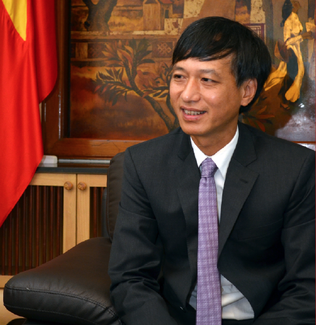
BACKGROUND OF AMBASSADOR
NGUYEN TAT THANH
Education:
• Graduated from the Diplomatic University (currently Diplomatic Academy of Vietnam), 1982 - 1987
• Certificate of the Russian language proficiency, Politechnic University of Kiev, Ukraine, 1987-1988
• Post-graduate Certificate in Development Economics, Obirin Post-graduate University, Japan, 1994 - 1996
• Certificate in Multidimensional Diplomacy: Building Partnerships for Development, Center for Applied Studies in International Negotiations, Switzerland, 2004
Diplomatic career:
• November 20, 2013, appointed by the President of the Socialist Republic of Vietnam as Ambassador Extraordinary and Plenipotentiary of the Socialist Republic of Vietnam to the Kingdom of Thailand. He also serves as Vietnam’s Permanent Representative to the United Nations Economic and Social Commission for Asia and the Pacific and other international organizations in Bangkok
• July 17, 2013, appointed Director-General of the Ministry of Foreign Affairs (MFA)
• From October 6, 2008 to November 17, 2008, Deputy Director-General in charge of the Department of Multilateral Economic Cooperation, MFA
• From January 2005 to January 2008, Minister Counselor, Deputy Permanent Representative of the Socialist Republic of Vietnam to the United Nations, New York
• From June to December 2004, worked at the Fifth ASEM Summit Secretariat, MFA
• December 5, 2001 appointed Deputy Director-General of the Department of Multilateral Economic Cooperation, MFA. Since March 2000 designated as Assistant Director-General of the Department
• March 1997, became a desk officer at the Integration Unit, Department of Economic Affairs, MFA
• March 1990, started working for the MFA at the Daily News Unit of the Ministry’s Secretariat
Decorations:
Ambassador Thanh has been awarded various prestigious medals and honors including: Award for Outstanding Achievement by the MFA in 2011, 2009, 2008 and 2005; Ministerial-Level Fellow on international economic integration issues in 2010; and Medal for the Diplomatic Profession in 2009
NGUYEN TAT THANH
Education:
• Graduated from the Diplomatic University (currently Diplomatic Academy of Vietnam), 1982 - 1987
• Certificate of the Russian language proficiency, Politechnic University of Kiev, Ukraine, 1987-1988
• Post-graduate Certificate in Development Economics, Obirin Post-graduate University, Japan, 1994 - 1996
• Certificate in Multidimensional Diplomacy: Building Partnerships for Development, Center for Applied Studies in International Negotiations, Switzerland, 2004
Diplomatic career:
• November 20, 2013, appointed by the President of the Socialist Republic of Vietnam as Ambassador Extraordinary and Plenipotentiary of the Socialist Republic of Vietnam to the Kingdom of Thailand. He also serves as Vietnam’s Permanent Representative to the United Nations Economic and Social Commission for Asia and the Pacific and other international organizations in Bangkok
• July 17, 2013, appointed Director-General of the Ministry of Foreign Affairs (MFA)
• From October 6, 2008 to November 17, 2008, Deputy Director-General in charge of the Department of Multilateral Economic Cooperation, MFA
• From January 2005 to January 2008, Minister Counselor, Deputy Permanent Representative of the Socialist Republic of Vietnam to the United Nations, New York
• From June to December 2004, worked at the Fifth ASEM Summit Secretariat, MFA
• December 5, 2001 appointed Deputy Director-General of the Department of Multilateral Economic Cooperation, MFA. Since March 2000 designated as Assistant Director-General of the Department
• March 1997, became a desk officer at the Integration Unit, Department of Economic Affairs, MFA
• March 1990, started working for the MFA at the Daily News Unit of the Ministry’s Secretariat
Decorations:
Ambassador Thanh has been awarded various prestigious medals and honors including: Award for Outstanding Achievement by the MFA in 2011, 2009, 2008 and 2005; Ministerial-Level Fellow on international economic integration issues in 2010; and Medal for the Diplomatic Profession in 2009
VIETNAM IN FACTS AND FIGURES
he Socialist Republic of Vietnam has an area of 331,212 square kilometers and has borders with China, Cambodia and Laos. From north to south it spans 1,650 kilometers. The population of the country is about 93 million people. About seven million people live in the Hanoi metropolitan area. Ho Chi Minh City is the country’s largest city, with about 7.9 million people (around 6.5 million in the metropolitan area). The highest point in Vietnam and all of Indochina is the 3,144 meter-high Fansipan mountain in Lào Cai province, in the northwest.
Vietnam has eight recognized World Heritage Sites: The Complex of Hue Monuments, Ha Long Bay, the Ho Dynasty Citadel, Thang Long Imperial Citadel, Hoi An Ancient Town, My Son Sanctuary, Phong Nha - Ke Bang National Park, and Trang An Landscape Complex. Every year millions of tourists, both locals and foreigners, visit the country’s historic and natural wonders.
he Socialist Republic of Vietnam has an area of 331,212 square kilometers and has borders with China, Cambodia and Laos. From north to south it spans 1,650 kilometers. The population of the country is about 93 million people. About seven million people live in the Hanoi metropolitan area. Ho Chi Minh City is the country’s largest city, with about 7.9 million people (around 6.5 million in the metropolitan area). The highest point in Vietnam and all of Indochina is the 3,144 meter-high Fansipan mountain in Lào Cai province, in the northwest.
Vietnam has eight recognized World Heritage Sites: The Complex of Hue Monuments, Ha Long Bay, the Ho Dynasty Citadel, Thang Long Imperial Citadel, Hoi An Ancient Town, My Son Sanctuary, Phong Nha - Ke Bang National Park, and Trang An Landscape Complex. Every year millions of tourists, both locals and foreigners, visit the country’s historic and natural wonders.

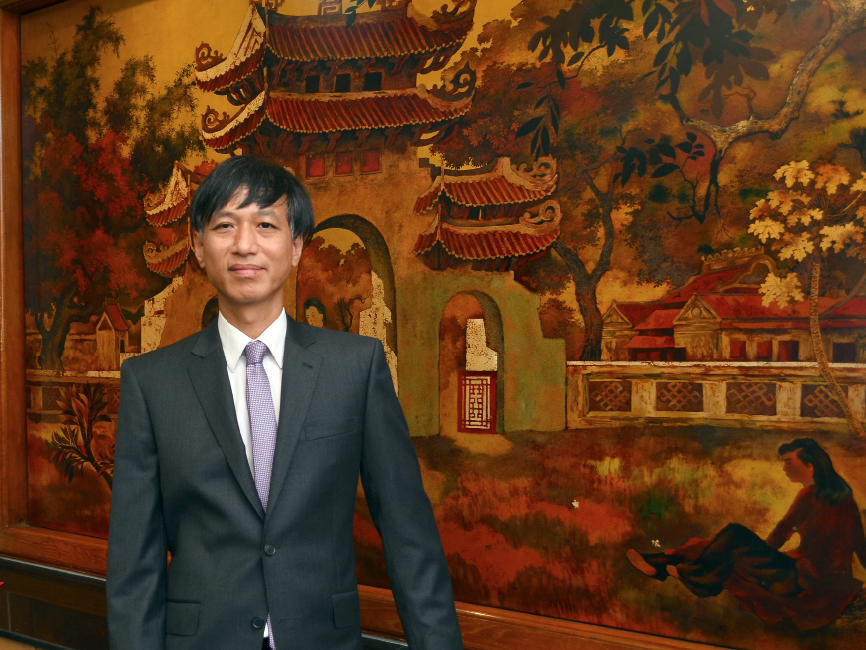
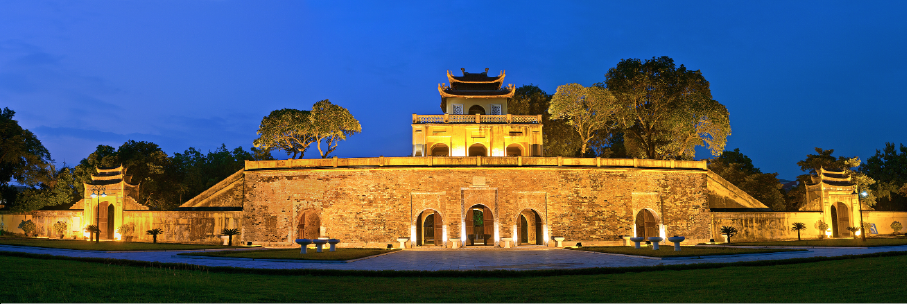
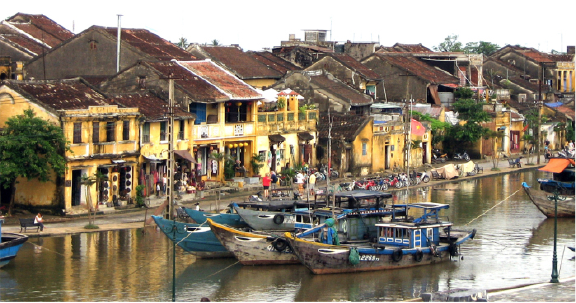
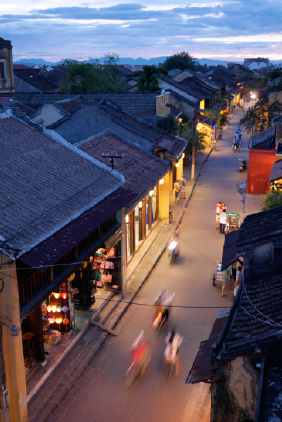
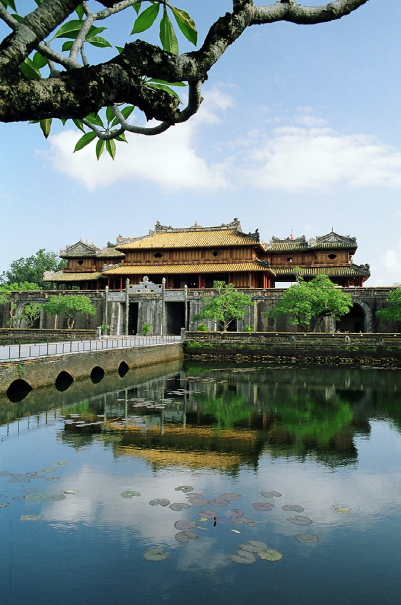
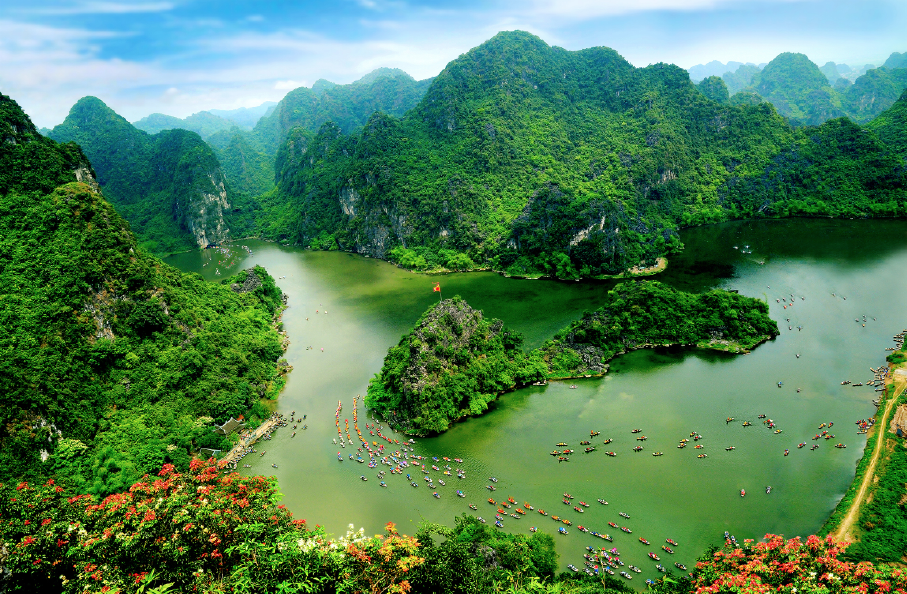
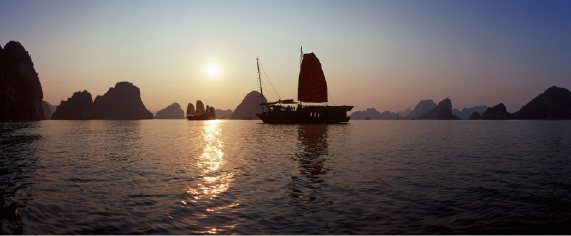
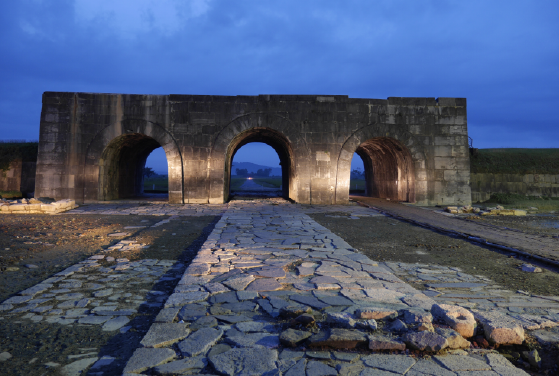
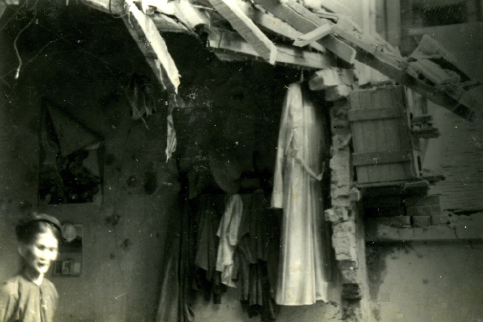
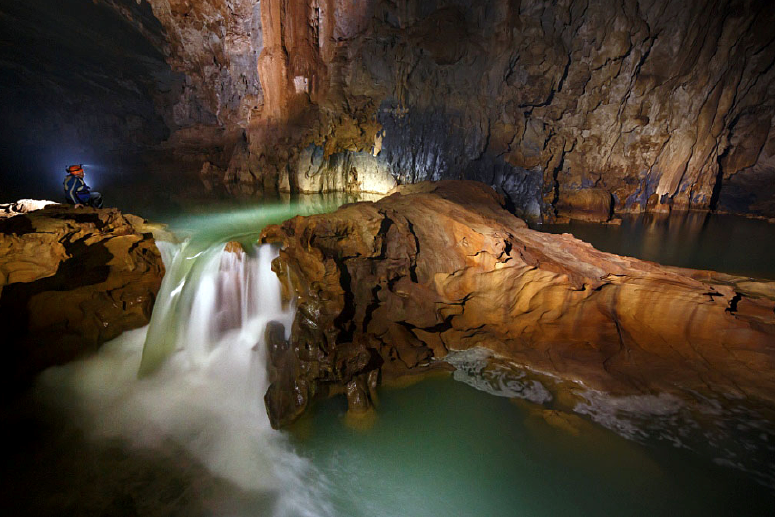
 RSS Feed
RSS Feed
















